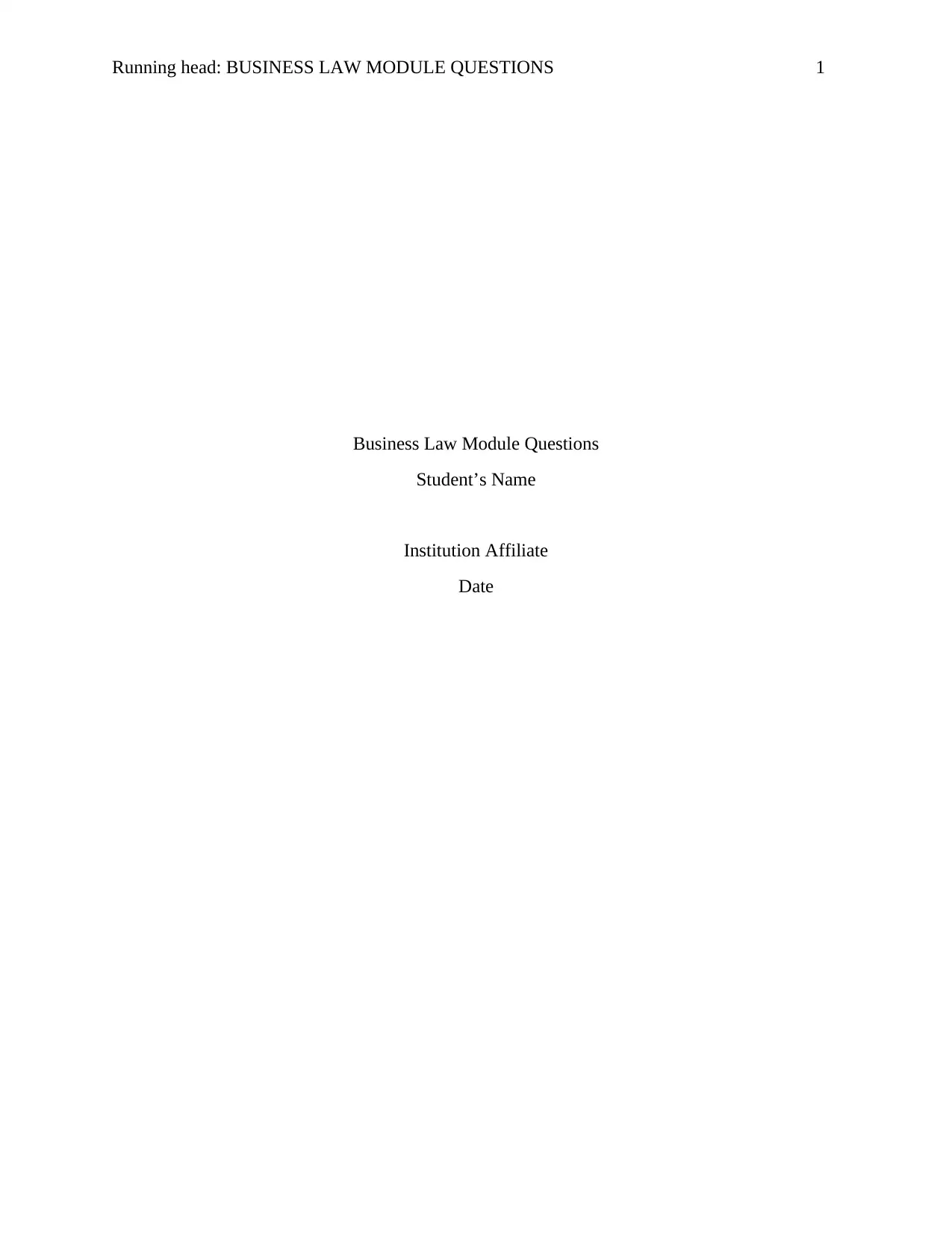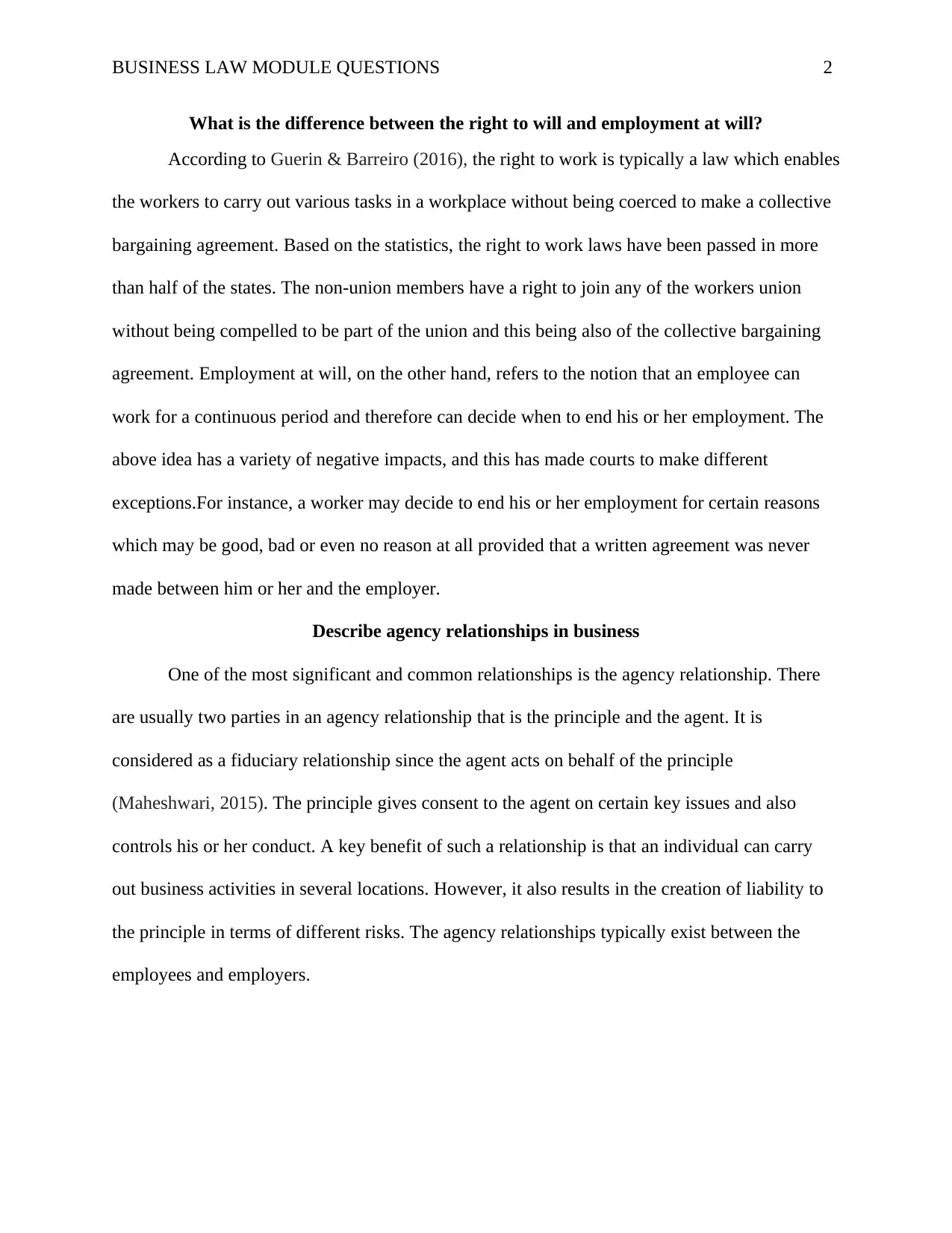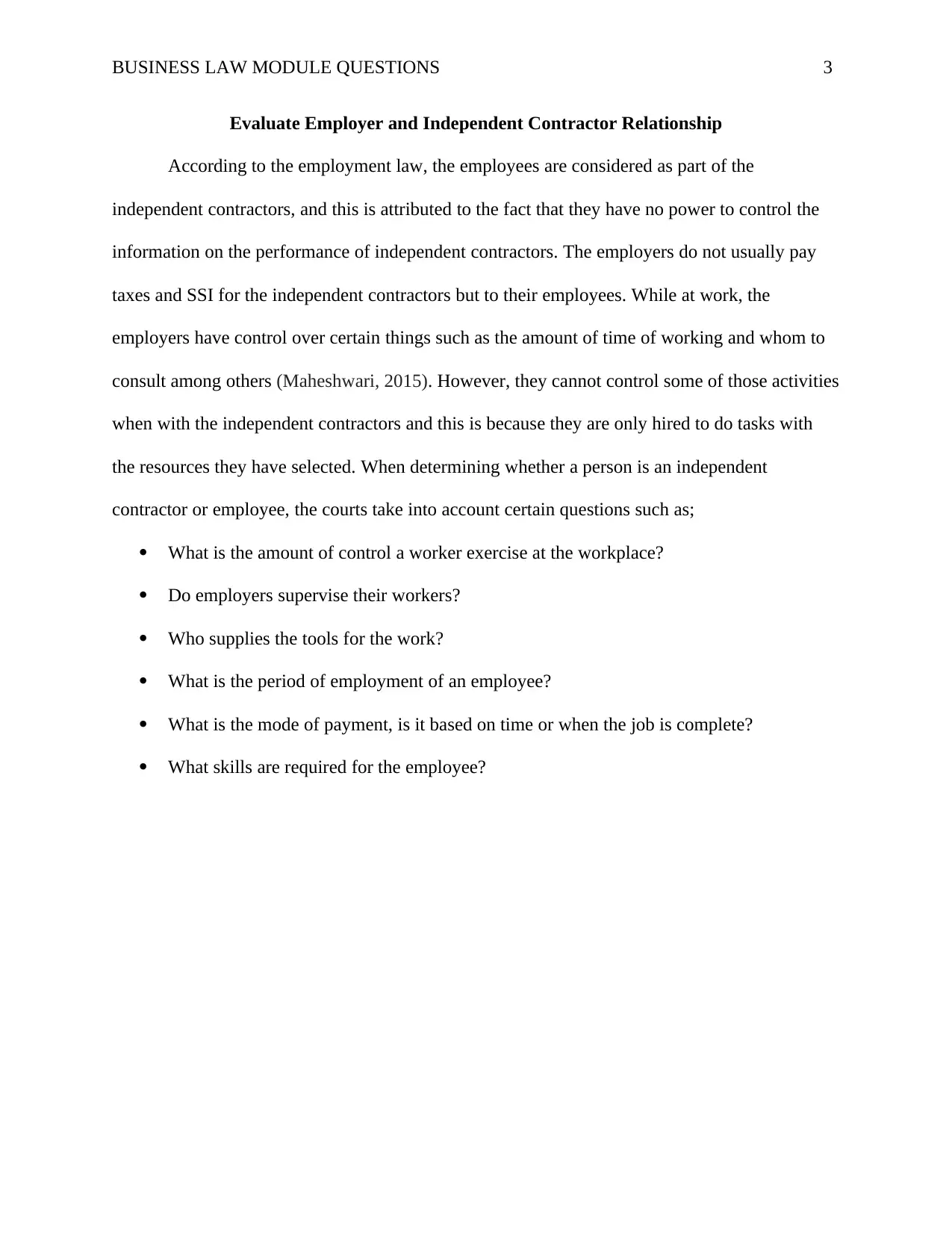Business Law Questions: Employment at Will vs. Agency Relationships
VerifiedAdded on 2023/06/07
|4
|621
|88
Homework Assignment
AI Summary
This assignment delves into key concepts in business law, contrasting the right to work with employment at will, defining agency relationships, and evaluating the employer and independent contractor relationship. The right to work protects employees' freedom to choose whether or not to join a union, while employment at will allows employers to terminate employment for any reason, barring a contract. Agency relationships involve an agent acting on behalf of a principal, creating potential liabilities. The distinction between employees and independent contractors hinges on control, supervision, provision of tools, employment duration, payment method, and required skills. This analysis provides a comprehensive overview of these critical aspects of business law. Desklib offers a variety of solved assignments for students.
1 out of 4











![[object Object]](/_next/static/media/star-bottom.7253800d.svg)